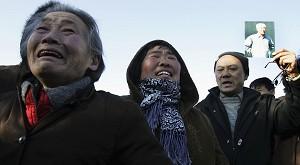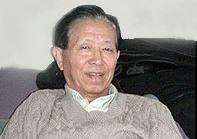BEIJING - A Chinese investor, accused of organising protests after the government confiscated lucrative private oil wells, pleaded not guilty on Monday to a charge of disturbing public order in a landmark trial marked by tight police security.
About 100 fellow investors were barred from attending the opening of Feng Bingxian’s trial and gathered in a show of support outside the courthouse in Jingbian in the northwestern province of Shaanxi.
Scores of police patrolled the area, which was closed off to traffic.
“I tried to peacefully reason (with the authorities) after I was deprived of my property. Now I have been further deprived of freedom. But as long as I am alive, I will not be resigned to being a slave,” Feng said in his defence, a copy of which was obtained by Reuters.
“I hope the judges could be loyal to laws rather than to their superiors, be immune from or less susceptible to government interference and arbitrate impartially and out of conscience, justice and professional ethics,” the 59-year-old Feng added.
A former official who went into private business and invested in 13 oil wells in northern Shaanxi, Feng is accused of organising illegal protests by several hundred disgruntled investors in April and May.
He argued that the petitions were peaceful and said officials had even taken him to lunch and promised further dialogue.
About 6,000 small investors, many local farmers and former officials, bought the wells with the blessings of the government in the late 1990s, pouring in about 7 billion yuan ($867 million) as demand for energy soared.
Feng invested about 10 million yuan (about $1.2 million) in the wells, according to his son.
In an about-face after the private investors struck oil, the provincial government seized the wells in 2003 and paid what investors said was paltry compensation.
The investors’ complaints were widely reported in the Chinese press before authorities restricted coverage, and the case became the focus of a nationwide campaign for stronger protection of private investors’ rights.
Feng’s trial had been postponed twice and his relatives said officials appeared nervous of press attention and protests.
After evading arrest for month, Feng was caught by police in July. Three other defendants have been freed on bail and will probably face lighter sentences, Feng’s son said.
One of Feng’s lawyers, Zhu Jiuhu, was detained along with him in July and released two months later after a campaign by human rights advocates and other lawyers. However, Zhu is still under criminal investigation and cannot defend Feng.
Protests in China are becoming increasingly common -- 74,000 last year compared with 58,000 in 2003 -- despite the Communist Party’s obsession with maintaining stability. The demonstrations have been sparked by public anger over a number of issues from pollution and corruption to a growing gap between rich and poor.
In Dongzhou village in the southern province of Guangdong, police opened fire on residents protesting about their lack of compensation for land appropriated for a new power plant. ($1 = 8.073 yuan)



Friends Read Free